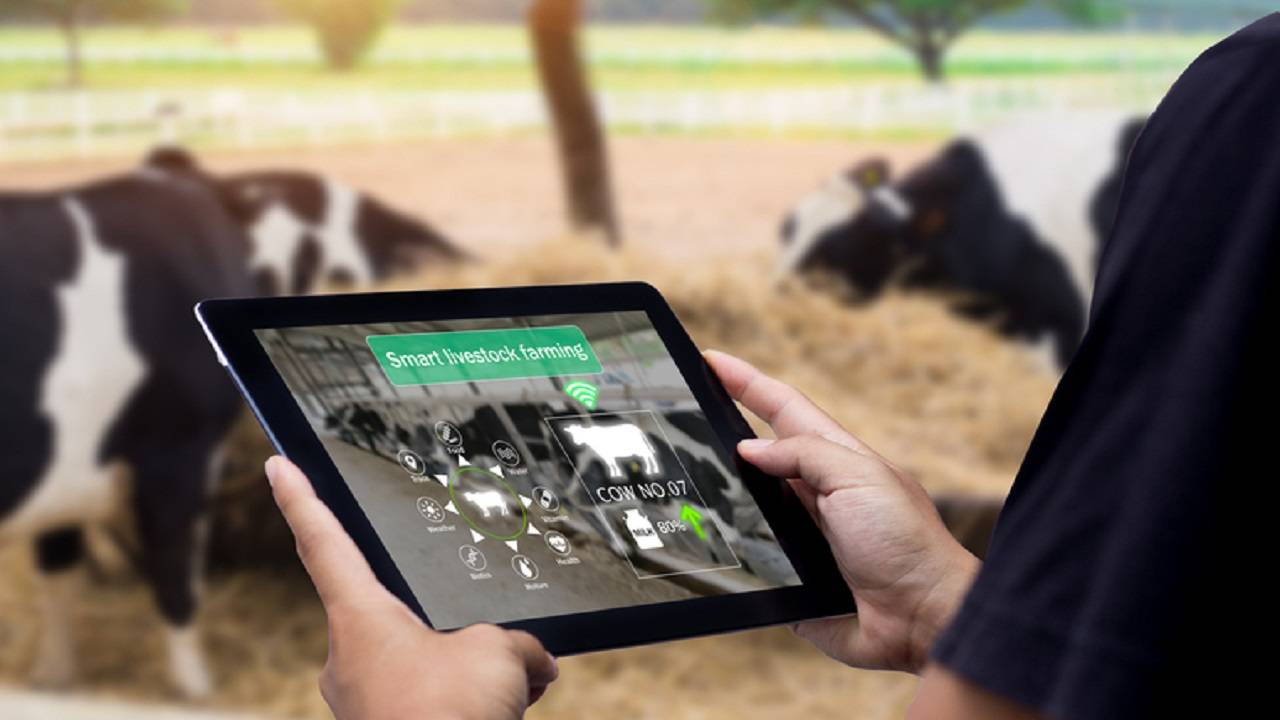
Precision livestock farming refers to the practice of continuous real-time monitoring of the health, welfare, production, reproduction, and environmental impact of the livestock. Precision livestock farming practices started gaining popularity in the early 2000s and are credited for playing a key role in the fourth industrial revolution.
Precision livestock farming techniques help farmers enhance their decision management by tracking animals through automated monitoring devices such as sensor cameras, microphones, internet access, and wireless communication networks. In addition to enhancing the efficiency and sustainability of livestock farming practices, precision livestock farming also aims to boost the management of crop processes to create a perfect synergy with livestock farming.
Precision livestock farming technologies
Virtual fencing- Virtual fencing is a precision livestock farming system that aims at controlling the grazing of the animal. This system of technologies is comprised of collars with GPS trackers and a battery-powered device. In this system, rather than installing a normal fence that can be easily damaged, the virtual fencing system will administer an electric shock to the animal if it tries to cross the boundary of the field. However, many people have raised concerns about animal welfare by using such means to recall animals. Instead, people prefer audio delivery devices that can be embedded in collars which can be used to recall animals towards a feed attractant.
Automated weighing systems- Most precision livestock farming technologies come with an automated weighing system as weight is an important indicator of animal health and livestock productivity. One form of automated-weighing system includes ‘Step-on scales,’ which are widely used in poultry to calculate the accurate mean weight.
Walk-over sensors are a type of automated weighing system that is used to measure the weight of pigs and bovines by passing them through a scale. Another automated weighing system uses less intrusive image and video analysis for obtaining information on the weight and recording feeding characters. These systems are also used to make health predictions and form management interventions.
Milking systems -Automated milking systems or AMS is a precision livestock farming tool that has been adopted in farms to enhance and increase the productivity of dairy farms. This system tracks the milk production of the animal with the help of milking robots and will milk the animal only when it is ready to be milked.
Low-cost feed and water intake recording- Water meters and different types of feed intake sensors are used to record information on the feeding and drinking behaviors of farm animals. This information, collected over a period of time provides a historical trend and expected levels of feed and water intake and is used to trigger early warning systems in case the feeding and drinking habits of animals change due to disease or other unfavorable conditions.
Benefits of Precision Livestock Farming
Better animal welfare and health- Precision livestock farming systems are used for the early detection of disease and as early warning systems.
Environment benefits- Precision livestock farming techniques lower the environmental impact of the farming operation. This is because traditional livestock farming practices are a major cause of environmental issues like global warming and deforestation. Precision livestock farming techniques are put in place to reduce methane emissions, and increase the productivity of farms in less, which ensures that better results can be obtained from a smaller piece of land.
Reduced farm labour- Precision farming techniques provide farmers with critical and reliable information, thereby, reducing farm labour. It also eliminates the need for farm labourers by installing systems such as GPS trackers, automated feeders, and milking systems.











